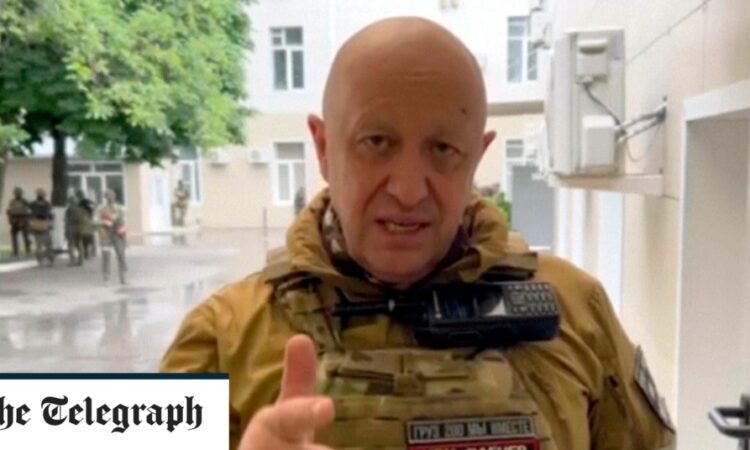
The Russian rouble tumbled to a near 15-month low against the dollar as markets responded for the first time to the short-lived military coup against Vladimir Putin.
The rouble has lost as much as 3pc against the dollar, hitting 86.88 as markets opened, its weakest point since late March last year, about a month after Russia invaded Ukraine.
The rouble has lost about 13pc of its value against the US currency this year, making it one of the worst performers among emerging markets worldwide.
It comes as Goldman Sachs warned that the world faces the risk of higher oil prices long-term, although Brent crude was little changed overnight after the Wagner mercenary group called off its march on Moscow over the weekend.
Analysts at the bank believe that while the short-term impact is likely to be muted, the unprecedented challenge to Putin’s authority risks a supply shock if the Russian leader’s 23 years in power come to an end.
Daan Struyven and Callum Bruce said: “The higher risk of lower supply at some point may put some upward pressure on prices.”
Goldman Sachs addressed a slate of possible, longer-term risks. Since the rebellion was initiated around Rostov-on-Don in the south — by the Sea of Azov, which filters into the Black Sea — oil infrastructure in that region may face a relatively higher risk of disruption or blockade, it said.
RBC Capital Markets LLC analysts including Helima Croft said: “The immediate challenge to the Putin regime appears to have receded.
“However, the risk of further civil unrest in Russia now must be factored into our oil analysis for the back half of the year.”
Oil was slightly higher after the Wagner Group abandoned its coup against the Putin regime having marched to within 150 miles of Moscow virtually unopposed.
Brent crude has gained 0.6pc to more than $74 a barrel while the rouble dropped to a 15-month low early in Moscow.
Russian mercenaries made a short-lived rebellion on Saturday, seizing the southern city of Rostov and advancing on Moscow demanding the removal of Russian military commanders in charge of the war in Ukraine.
The private Wagner army then withdrew after striking a deal guaranteeing their safety and the passage of their leader, Yevgeny Prigozhin, to Belarus.
Ray Attrill, head of foreign exchange strategy at National Australia Bank in Sydney, said: “I don’t think the market can get its head around working out if there are implications.”






